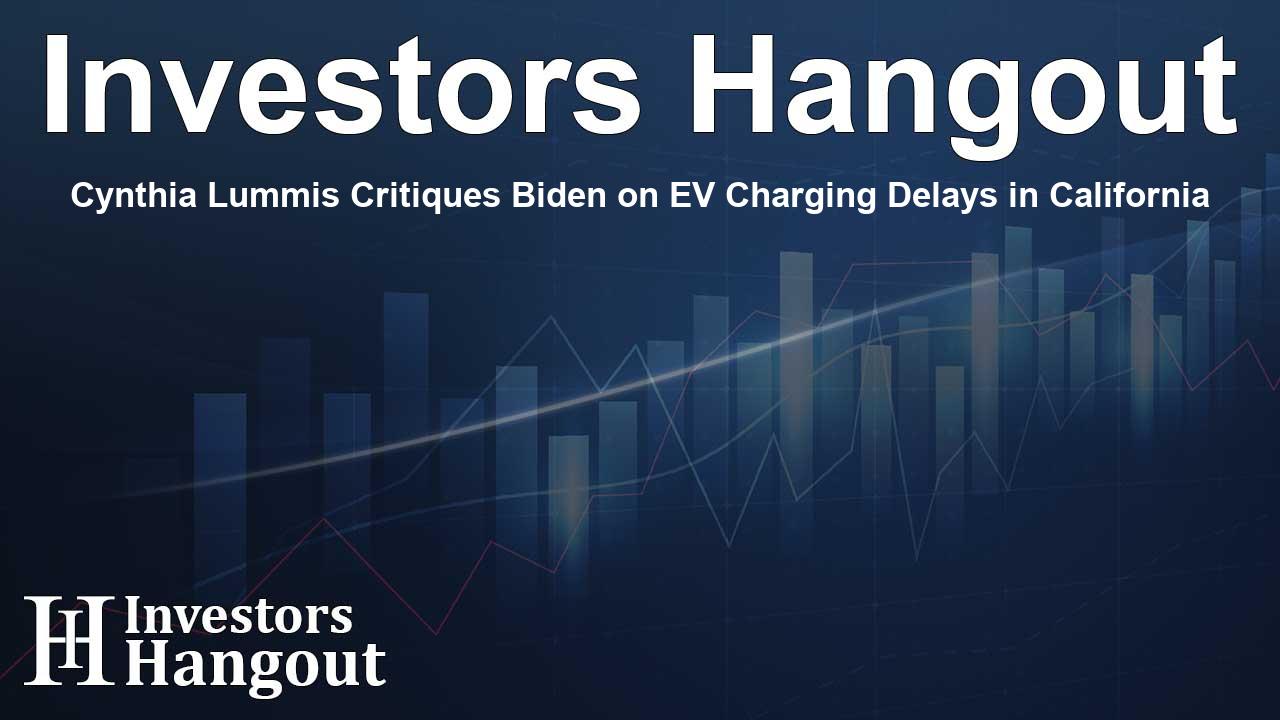Cynthia Lummis Critiques Biden on EV Charging Delays in California

Cynthia Lummis Critiques Biden on EV Charging Delays
Senator Cynthia Lummis has recently voiced her frustrations regarding the sluggish progression of electric vehicle (EV) charging infrastructure under President Joe Biden. In her remarks, she pointed out the significant delays in California, a state pivotal for EV adoption in the country.
Concerns Raised About Infrastructure Development
Lummis emphasized the urgent need for rapid infrastructure deployment, asking the President how the nation plans to support its electric vehicles by 2030 when California—the leader in EV adoption—faces potential delays of up to nine years for new power substations. This timeline, she argues, contradicts the ambitious national goals set forth by the Biden administration.
California's EV Adoption Rates
California stands out as the fastest-growing market for electric vehicles in the United States. Recent sales figures indicate that in a single quarter, the state sold over 118,000 electric vehicles, which represents around 30% of all EV sales nationwide. Such statistics highlight California's crucial role in America's transition to electric mobility.
Impact of Regulatory Decisions
The California Public Utilities Commission recently sanctioned a delay in project timelines for major utility companies such as Pacific Gas and Electric, San Diego Gas & Electric, and Southern California Edison. This decision, allowing almost nine years for the completion of a critical substation, has raised alarms among advocates and policymakers involved in the state’s EV strategy.
Growing Number of Charging Stations
In response to the increasing demand for electric vehicle usage, California's charging infrastructure has expanded significantly. Governor Gavin Newsom announced that the state now boasts more than 150,000 public chargers, in addition to over 500,000 private home chargers. This extensive network plays a vital role in supporting California's trajectory towards sustainable transportation.
Future Goals for Electric Vehicles
California has set an ambitious target to transition all new car sales to zero emissions by 2035. Meanwhile, the Biden administration aims for half of all vehicles sold nationwide to be zero-emission by 2030 and plans to establish a comprehensive network of 500,000 charging stations. Achieving these goals is dependent on overcoming existing infrastructure hurdles.
Current State of Public Charging Infrastructure
According to the latest reports from the Department of Energy, there are approximately 196,000 public EV charging ports across the U.S. at more than 72,000 locations. While this expansion is encouraging, there are still challenges, including nearly 2,000 ports that are either under construction or awaiting permits, and approximately 11,000 that are currently offline.
The Path Ahead for EVs
The conversation around EV infrastructure is not just a matter of numbers but involves broader discussions about energy policies and economic impacts. With California leading the charge, the state's progress in EV infrastructure developments is closely watched and will likely influence national trends.
Frequently Asked Questions
What sparked Senator Lummis’s criticism of President Biden?
Senator Lummis criticized President Biden due to the slow deployment of EV charging infrastructure in California, which she believes is unacceptable given the state’s leading role in electric vehicle adoption.
How significant are EV sales in California?
California accounts for about 30% of all electric vehicle sales in the United States, making it a crucial market for the EV industry.
What is California's target for vehicle emissions?
California aims for all new car sales to be zero-emission vehicles by 2035, reflecting a strong commitment to environmental sustainability.
What challenges does California face regarding EV infrastructure?
The state faces significant delays in infrastructure development, with some projects projected to take nearly nine years to complete, hindering efforts to meet future EV demands.
How many public EV chargers are currently available in the U.S.?
As of now, there are over 196,000 public EV charging ports available across the U.S. at more than 72,000 station locations, indicating substantial growth but also ongoing challenges.
About Investors Hangout
Investors Hangout is a leading online stock forum for financial discussion and learning, offering a wide range of free tools and resources. It draws in traders of all levels, who exchange market knowledge, investigate trading tactics, and keep an eye on industry developments in real time. Featuring financial articles, stock message boards, quotes, charts, company profiles, and live news updates. Through cooperative learning and a wealth of informational resources, it helps users from novices creating their first portfolios to experts honing their techniques. Join Investors Hangout today: https://investorshangout.com/
Disclaimer: The content of this article is solely for general informational purposes only; it does not represent legal, financial, or investment advice. Investors Hangout does not offer financial advice; the author is not a licensed financial advisor. Consult a qualified advisor before making any financial or investment decisions based on this article. The author's interpretation of publicly available data shapes the opinions presented here; as a result, they should not be taken as advice to purchase, sell, or hold any securities mentioned or any other investments. The author does not guarantee the accuracy, completeness, or timeliness of any material, providing it "as is." Information and market conditions may change; past performance is not indicative of future outcomes. If any of the material offered here is inaccurate, please contact us for corrections.